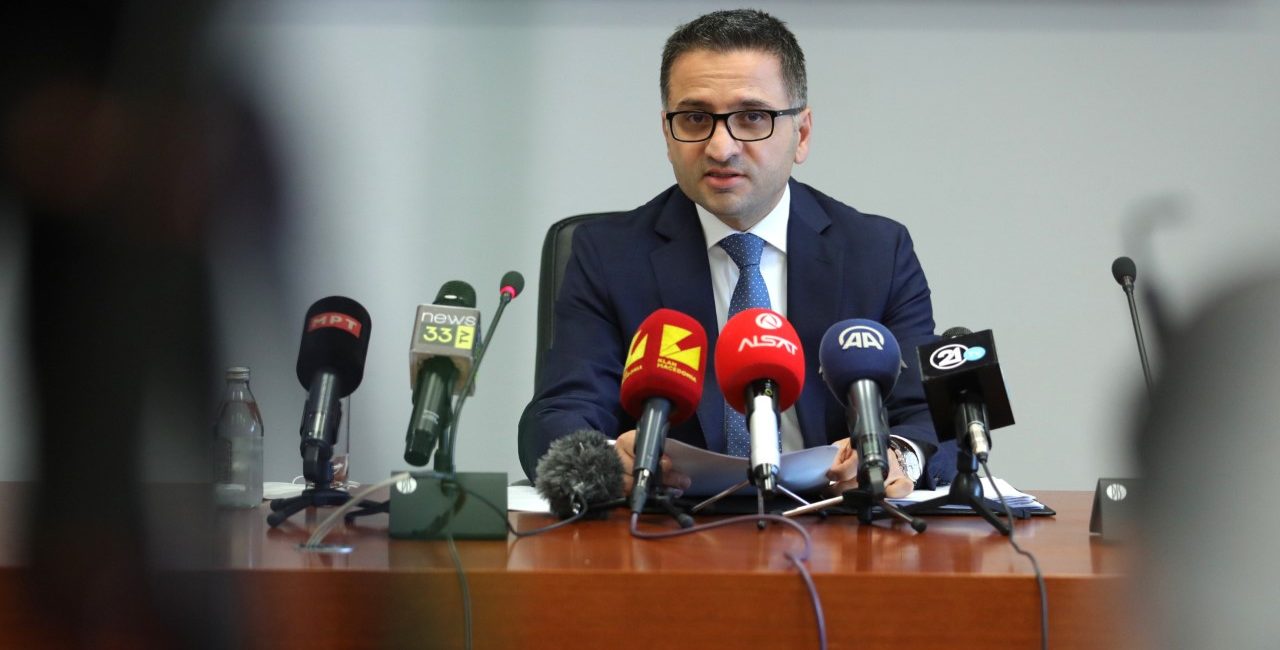Growth rate of 4%-5% and 20% to 30% increase of wages, i.e. higher than Denar 32,000, in the coming four years so as to improve the standard of the citizens and the economy in the country. These are the main goals and tasks of the Minister of Finance, Fatmir Besimi, in his coming four-year term of office at this position. He underlined that his and the task of his team is to put the country, as soon as possible, back on the track towards solid economic growth, decent wages, job creation and unemployment reduction, predictable tax policy and European future for our citizens in general.

– My team and I are actively working on measures and policies to provide support to recovering sustainable and inclusive growth, the benefits of which will be enjoyed by as many citizens as possible. First and utmost, solid and sustainable 4% growth of the economy to be restored by the end of the term of office, which will create a solid basis to double the long-term average economic growth of 2.6% in the last 10 years to 4% up to 5% growth in the coming period. Once the crisis is over, to provide for the average wage to be increased by 20% to 30% by the end of the term of office, depending on the duration and the effects of the pandemic on both the global and the national economy, which will actually also provide for increased minimum wage, Minister of Finance Besimi said at the press conference held in the Ministry of Finance.
He pointed out that the Ministry of Finance intensively works on the fourth set of measures aimed at economic recovery, i.e. enhancing the liquidity and the financial stability of companies, stimulating private consumption and encouraging public and private investments in the economy.
– We will be devoted to quickly end the negative trend and to reduce the blow on the economy in the third and the fourth quarter, with positive growth in 2021, provided that the epidemiological situation does not worsen. In particular, these measures are to complement the previous ones and to inject fresh liquidity in the economy. To that end, some of the existing measures, having the potential to further support the economic recovery, are being redesigned or improved, he said.
Expectations are that, by exhausting the unfavourable effects of the pandemic and improving the utilization of the production capacities, as well as the expected export growth within the traditional activities, export activity will be revived. On the medium term, in conditions of certain stabilization of the growth of external demand and increased export potential in the country via inflow of FDIs, the export is expected to have a solid contribution to the economic growth.
Besimi pointed out that, during the crisis, the aim of the measures will be to strive for unemployment rate not to increase significantly, while following the end of the crisis and by the end of the term of office, to continue the pace of reducing the unemployment rate by 3 percentage points annually.

He underlines that these goals can be attained through the SMART finances concept (strategic, maintainable, reform-oriented and transparent finances), as well as through clear tasks and duties and accountable and transparent operations.
– No mission, no goal can be attained quickly, without a well-devised approach and strategy for its realization. I have committed myself to introduce the SMART finances concept, i.e. a public finances system, to be based on clear strategy and to be maintainable, accountable, reform-oriented and transparent. From the point of view of economic philosophy or political economy, this will mean aiming at more just model of public finances from the point of view of revenues, expenditures and the manner of financing, i.e. in other words, how the funds are collected in the Budget and how citizens’ money is spent, Besimi said.
He said that, when attaining the strategic goals, traditional budgeting, based on short-term and incremental level of financing, should be re-oriented to long-term performance-based budgeting.
-The performance of the institutions matters and the amount of funds to be allocated to the budget institutions for projects, as per the results achieved, is determined accordingly. Thus, we can overcome the unrealistic planning we see years back, even decades back, when capital expenditures were unrealistically planned which, later on, actually underperformed. Fiscal year-to-year planning should be oriented towards longer-term planning. Most of the strategic and capital projects are not realized in the course of one fiscal year, but rather in the course of several years. The ability to determine the right project pace on the medium term can be of crucial importance for the project realization itself, Minister of Finance said.
When designing the policies and the measures, we will be led by the principle of accountability and measuring the performance in attaining the goals via the so-called SMART Key Performance Indicators (S – specific goal, M – measurable, A – attainable, R – relevant, T – time frame), i.e. the objectives to be well specified, measurable, attainable, relevant and with implementation time frame, he underlined.














